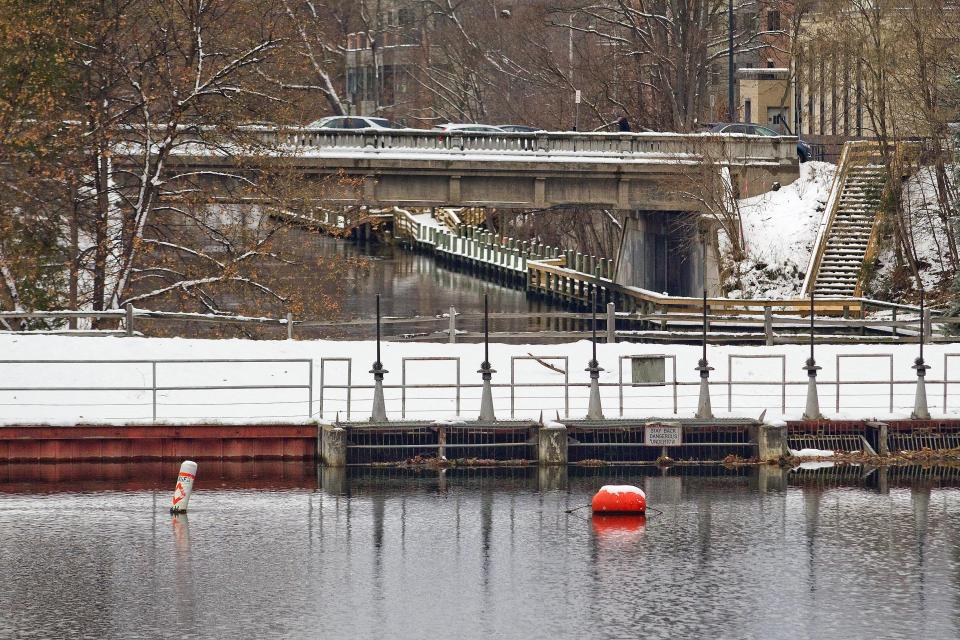Court of Appeals approves Traverse City dam project that protects native fish
TRAVERSE CITY — The Michigan Court of Appeals has reversed a 2021 order that blocked Traverse City from moving forward with its FishPass project, which would allow native fish species to move up and downstream while keeping harmful invasive species like sea lampreys out, Attorney General Dana Nessel announced.
“We're thrilled of course. We're ready to get back on track with FishPass and we always believed that our case was very strong, the city's case,” said Marc Gaden, deputy executive secretary for the Great Lakes Fisheries Commission. "It's been unnecessarily delayed for a couple of years and we're ready to get moving again.”
Judge Thomas Power of the Thirteenth Circuit Court in Grand Traverse County ruled against the city and said the issue should be subject of a citywide vote. The city appealed with the support of Nessel and went before the Michigan Court of Appeals in Petoskey on Oct. 4.
More:As climate change alters Michigan forests, some work to see if and how the woods can adapt
More:Traverse City project would aid native fish while blocking invasive species
FishPass is the conclusion to a 20-year effort to free the Boardman-Ottaway River in Traverse City. Three of the four dams were removed but the last dam is an earthen dam that is degrading. However, the structure holds up the Boardman Lake and keeps out invasive species like sea lamprey.
Removing the structure was not an option, but the Union Street Dam poses a threat to downtown Traverse City if it were to fail. Building a new dam is a large expense, however, so the FishPass project would bring together funding from multiple entities to build a new dam and pay for the research.
“I have been in support of the city since day one," Nessel said in a news release announcing the appeals court decision. "Updates to the infrastructure of the Union Street Dam in Traverse City are critical in protecting the downtown from flooding and ensuring invasive species do not travel the Boardman River and other Michigan waterways.”
In addition to building a new dam, the project includes a research and education center where researchers will look into methods of sorting fish so that species that belong in the river can travel safely through and species that do not belong are kept out.
Some of the methods the research will look into is detecting density, size, shape, color and magnetism; image recognition technology and environmental stimulation like bubbles, sound, light and pheromones.

A chance to reintroduce native species
The project will also have a recreational aspect for community members. Much of this was planned through direct outreach where residents told the commission they wanted to see natural aesthetics, green space and rain gardens. They also did not include picnic tables or grills in the design, as requested by community members.
“We and our partners have never lost sight of why we're doing this, and that is because it's right for the Boardman-Ottaway River and it's right for the Great Lakes," Gaden said. "We need to solve this connectivity conundrum whereby dams block the movement of things that we want in streams, native fish, for example, like sturgeon and suckers. And dams also keep out bad things like sea lampreys, and we want to be able to have it both ways.”
“(This) is a golden opportunity to reintroduce native species to that river system. They belong there. It's a problem that plays out throughout the Great Lakes basin and frankly throughout the world, and that's what this project is focused on," he said.
— Contact reporter Tess Ware at tware@petoskeynews.com. Follow her on Twitter, @Tess_Petoskey.
This article originally appeared on The Petoskey News-Review: Court approves Traverse City dam project that protects native fish

